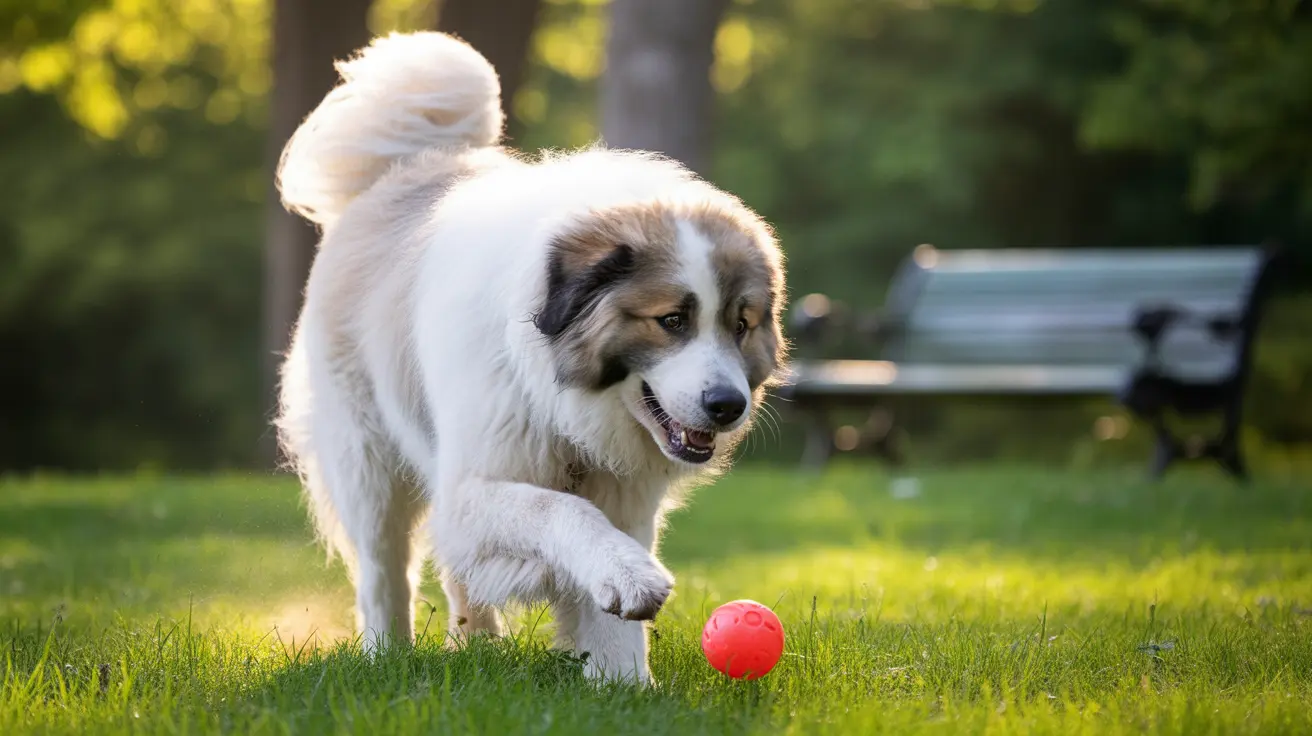If you've ever watched your dog perform their bathroom routine, you've likely noticed them kicking or scratching the ground afterward. This seemingly peculiar behavior isn't just a random act - it's actually a sophisticated form of communication that dogs have developed over thousands of years.
Let's explore the fascinating reasons behind why dogs kick after they pee and what this behavior means for our four-legged friends' social and territorial interactions.
The Science Behind Post-Urination Kicking
When dogs kick after urinating, they're engaging in a complex marking behavior that serves multiple purposes. Their paw pads contain special scent glands that release pheromones - chemical signals that communicate with other dogs. The action of kicking not only spreads these pheromones but also creates visible marks in the environment.
This dual-purpose marking system helps dogs establish their presence in an area more effectively than urine alone. The pheromones from their paw pads can actually last longer than the scent of urine, making this an efficient way to mark territory.
Communication Through Ground Scratching
Dogs use this post-elimination ritual as part of their sophisticated communication network. When they kick the ground, they're essentially leaving a calling card for other dogs that contains important information about their presence, status, and even emotional state.
This behavior becomes particularly noticeable in social settings like dog parks or neighborhoods with multiple dogs. Your pet is essentially saying, "I was here" in a way that other dogs can clearly understand through both visual and olfactory cues.
The Evolutionary Purpose
This behavior has deep roots in wild canine ancestry. Wild dogs, wolves, and other canids use similar ground-scratching techniques for territory marking and communication. In the wild, this behavior serves several survival purposes:
- Creating visual territorial markers
- Spreading scent more effectively
- Establishing dominance in an area
- Warning other animals of their presence
Modern Domestic Dogs and Kicking Behavior
While our domestic dogs may live in comfortable homes, these ancestral instincts remain strong. Both male and female dogs engage in this behavior, though individual dogs may display varying levels of enthusiasm for the practice. Some dogs might give a cursory scratch, while others put on quite a show with elaborate kicking routines.
Frequently Asked Questions
Why do dogs kick the ground after they pee or poop?
Dogs kick the ground after elimination to mark their territory through both scent glands in their paws and visual markers in the ground. This behavior helps them communicate their presence to other dogs.
How does kicking help dogs communicate with each other?
The kicking action releases pheromones from special glands in their paw pads and creates visible marks, allowing dogs to leave lasting signals that other dogs can detect both visually and through scent.
What is the role of paw scent glands in marking territories?
Paw scent glands release pheromones that contain information about the dog and last longer than urine scents. These chemical signals help establish territorial boundaries and communicate with other dogs.
Is it necessary to stop my dog from kicking the ground after eliminating?
No, this is a natural and harmless behavior that helps dogs fulfill their instinctual need to communicate and mark territory. There's no need to discourage it unless it's causing property damage.
How does kicking after elimination relate to a dog's social status or age?
Dogs of all ages and social standings may exhibit this behavior, though it can be more common in confident or territorial dogs. Senior dogs and those who feel the need to establish their presence may show increased kicking behavior.






